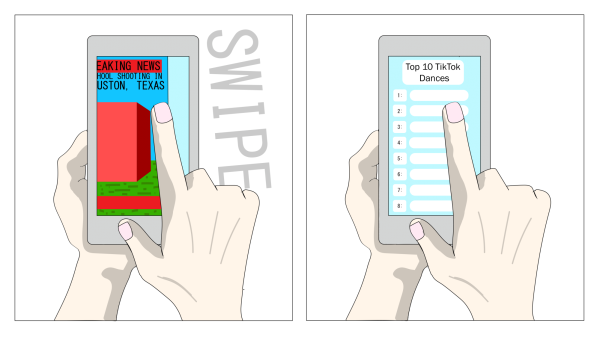We’ve got a long way to go
In light of the June 26 Supreme Court ruling legalizing marriage equality in the U.S., efforts in the fight for LGBTQ+ rights among the general population have largely been put on hold. It’s like begging your parents to bring home Chipotle and when they ask you what you want, you’re not quite sure since you didn’t expect to get that far. Similarly, the hot topic circulating among LGBTQ+ rights activists and supporters is, well, now what?
The answer to this question lies in a statement made by Morgan Alan, Design and Multimedia Coordinator of the Gay and Lesbian Alliance Against Defamation, which defined the legalization of same-sex marriage as a “benchmark, not a finish line.” We should think of the Supreme Court ruling as a platform for increasing LGBTQ+ equality, rather than the pinnacle of LGBTQ+ equality itself.
When Chief Justice Anthony Kennedy finalized the 5-4 decision to legalize same-sex marriage, the fact that transgender men and women must walk home with their keys between their knuckles, that families force their own children onto the street for being who they are and that “gay” is still used as a synonym for “moronic” or “stupid,” didn’t change.
Because of this, it’s quite clear that as a generation, we still have a long road ahead of us. Just recently, Shadi Petosky, a transgender woman, was detained in the Orlando airport for being an “anomaly” according to the Transportation Security Administration officers present, meaning that her genitalia did not match her aparrent gender identity, despite Petosky’s explanation of her trans identity.
Even in Oviedo, Lawton Chiles student Tristen Bland was told by a teacher not to prepare her Tropicana speech on LGBT rights because its content may offend others. Societal prejudices and misconceptions against the LGBTQ+ community are clearly still alive and well, even in our own backyard.
And while the heterosexual population is the culprit most of the time, the LGBTQ+ community is not entirely guiltless. Peoples of certain lesser known sexualities face discrimination within the group of people that should accept them most. It is important to remember that no sole group is responsible for social prejudice; it’s everybody’s responsibility.
Gay marriage’s legalization was inevitable, of course. It was only a matter of finding the right time and place to make it happen, which turned out to be Friday, June 26, 2015. The Supreme Court ruling only set the stage for change in America toward LGBTQ+ equality, but we’ve got to take it the next step. Maybe in the next generation, people will be able to come out to their family and friends in a celebratory, rather than apologetic, manner. Maybe in the next generation, transgendered people will be able to walk through airports undeterred. Maybe in the next generation, people like Kim Davis won’t be met with thunderous applause and words of support. Until then, however, we need to ask ourselves: now what?

Your donation will support the student journalists of Hagerty High School. We are an ad-free publication, and your contribution helps us publish six issues of the BluePrint and cover our annual website hosting costs. Thank you so much!






